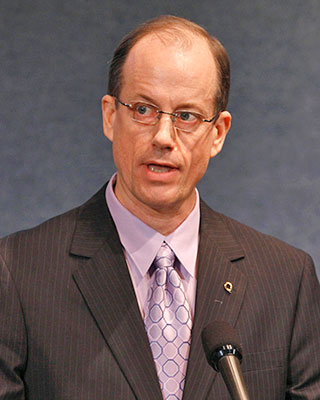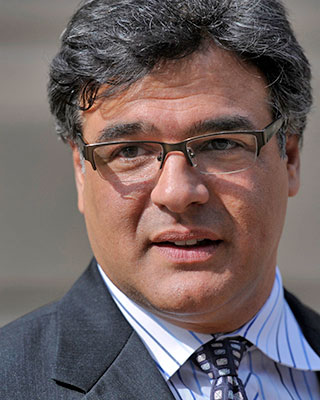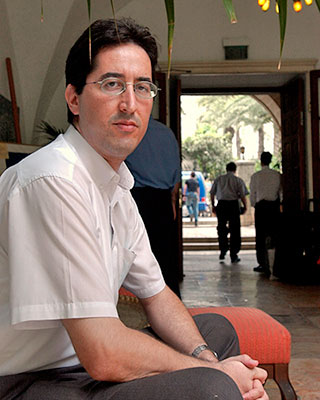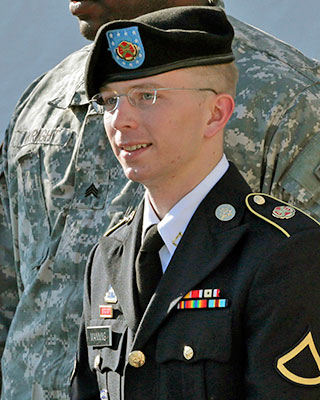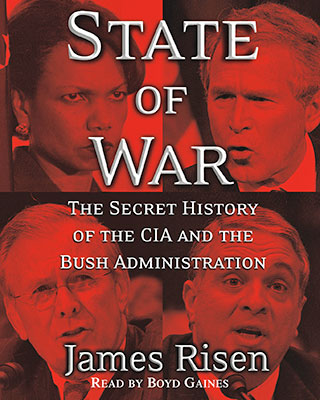|
The Obama administration has been carrying out an unprecedented crackdown on whistleblowers, particularly on those who have divulged information that relates to national security.
The Espionage Act, enacted during the first World War to punish Americans who aided the enemy, had only been used three times in its history to try government officials accused of leaking classified information - until the Obama administration.
Since 2009, the administration has used the act to prosecute six government officials. Meet the whistleblowers. Thomas Drake
Thomas Drake speaks at the National Press Club in Washington, Wednesday, April 13, 2011, during the Ridenhour Prize awards ceremony where he was honored. The Ridenhour Prize seeks to reward individuals who have courageously taken a public stand against injustice, corruption and incompetence. (AP Photo/Jacquelyn Martin)
Thomas Drake is a former senior executive at the NSA who was charged under the Espionage Act for the unauthorized “willful retention” of classified documents.
Drake’s problems with the agency started when he found himself on the minority side of a debate about two new tools for collecting intelligence from digital sources.
Then, in the wake of the attacks of Sept. 11 2001, the NSA, with the approval of the Bush administration, began the illegal warrantless surveillance of American citizens.
This did not sit well with Drake, who says that during his time in the Air Force, where he also did surveillance work, the imperative to protect American’s privacy was drilled into him.
As a father of five, one of whom has serious health problems, Drake concluded that he’d go to the press with his complaints about the NSA - but he’d only share unclassified information, thinking perhaps he’d lose he’s job but at least not end up in jail.
So he leaked the story of ThinThread vs. Trailblazer - a simple story of government waste - to the Baltimore Sun. A few months later, the FBI appeared at his door.
Drake at one point faced up to 35 years in prison for various charges, most of which were dropped. He eventually pleaded guilty to a misdemeanor for exceeding authorized use of a computer.
Stephen Jin-Woo Kim
Stephen Jin-Woo Kim (photo courtesy Stephen Kim Legal Defense Trust)
In 2010, Stephen Jin-Woo Kim, a specialist in nuclear proliferation who worked as a contractor for the State Department, pleaded not guilty to charges of leaking information about North Korea to Fox News.
He was indicted by a Federal Grand Jury, but the case has not yet been brought to trial.
Fox journalist James Rosen, with whom Kim had been in touch in the past, reported in 2009 that North Korea would likely test another nuclear missile in reaction to a pending United Nations Security Council resolution condemning its nuclear tests. The Justice Department said Kim was Fox’s source.
Kim, who immigrated to the U.S. from South Korea when he was nine years old, told Bloomberg News that,
Kim’s lawyers said that Kim was being charged for participating in the type of exchange between experts and the press,
John Kiriakou
Former CIA officer John Kiriakou leaves U.S. District Courthouse in Alexandria, Va., in October 2012 after pleading guilty, in a plea deal, to leaking the names of covert operatives to journalists. (AP Photo/Cliff Owen)
John Kiriakou, a former CIA agent, was sentenced to two and a half years in prison for giving journalists the names of two former colleagues who interrogated detainees using harsh practices including waterboarding.
Kiriakou became central to the debate surrounding interrogation tactics in 2007 with an interview on ABC News.
By then, he had left the CIA and was working at the auditing firm Deloitte.
He suggested that our country should abandon the technique because,
After the interview, Kiriakou was asked to leave Deloitte but became a source for other journalists investigating torture.
Over the course of the next year he gave the name of one former colleague to a freelance reporter and gave the name of another former colleague to a reporter for The New York Times.
He pleaded guilty in October 2012 to the leak made to the freelancer; the charge related to The New York Times was dropped.
Shamai Leibowitz
Shamai Leibowitz at a Jerusalem hotel in 2002. (AP Photo/Peter Dejong)
Shamai K. Leibowitz, a former FBI Hebrew translator and the grandson of Israeli philosopher Yeshayahu Leibowitz, pleaded guilty to leaking classified information before a judge who later said he did not know exactly what Leibowitz had disclosed - just that it was a “very, very serious offense."
Leibowitz was sentenced to 20 months in prison.
Leibowitz had leaked 200 pages of transcribed conversations recorded by FBI wiretaps of the Israeli embassy in Washington. They documented discussions embassy officials had with American supporters of Israel and at least one member of Congress - and a discussion among Israeli officials in which they worry that their exchanges might be monitored.
The leak was to a blogger, Richard Silverstein, who writes the blog Tikun Olam promoting peace between Israel and Palestine and monitoring U.S. government overreach. Silverstein burned the transcripts when Leibowitz came under investigation.
In an interview with The New York Times, Silverstein said that Leibowitz released the transcripts because of Israel’s aggressive attempts to influence public opinion in the U.S., and because Leibowitz worried that Israel would take what he saw as the potentially disastrous step of bombing nuclear facilities Iran.
Bradley Manning
Bradley Manning is escorted out of a courthouse in Fort Meade, Md., on June 25, 2012, after a pretrial hearing. (AP Photo/Patrick Semansky)
Pfc. Bradley Manning admitted to leaking 700,000 government documents to Wikileaks, including videos of air strikes in Afghanistan and Iraq in which civilians were killed.
Manning said one of the videos, from 2007, was particularly disturbing to him - it showed American Apache helicopters killing a dozen people in Baghdad, including two Reuters journalists, and then opening fire on a van that arrived to help the victims.
Manning noted the “seemingly delightful blood lust” of the airmen.
Manning said in February that his goal in releasing the materials was to show the public,
In 2010, while on leave, Manning first tried to leak materials to The Washington Post, but felt the reporter he spoke with was not interested.
He then left a message with the ombudsman’s office at The New York Times which was not returned. So he uploaded the files to WikiLeaks. He was arrested on May 29, 2010; his trial is set for June 3, 2013.
A military judge ruled earlier this month that for Manning to be convicted under the Espionage Act, the prosecution would have to prove that Manning had “reason to believe” that the files could be used to harm the U.S. or to aid a foreign power.
Manning said during his February confession that he thought carefully about the information he was releasing, and felt nothing he leaked could be used to harm the U.S.
Jeffrey Sterling
Jeffrey Sterling was accused of giving information to journalist James Risen for his book 'State of War.'
Jeffrey Sterling, a former-CIA officer, pleaded not guilty to the charge that he leaked information about a U.S. plan to sabotage Iran’s nuclear operations to Pulitzer Prize-winning New York Times journalist James Risen for his book 'State of War.'
The book had a chapter on a botched operation to derail Iran’s nuclear ambitions through sabotage, and the Justice Department charged that Sterling had been Risen’s source.
Risen recounts how, in the early 2000s, the CIA sent a Russian nuclear scientist to Iran to leak flawed plans for a nuclear bomb-triggering device in an attempt to set back the country’s efforts to develop a bomb. But the flaw in the bomb plans was so obvious that the Russian scientist spotted it immediately - the scientist then told the Iranians that there was an obvious flaw in the plans so that they would take him seriously.
Risen’s source felt the Iranians likely were able to learn from the parts of the plans that weren’t flawed, and that the operation, intended as sabotage, may have in fact brought Iran closer to developing a nuclear weapon.
The CIA had suspected Sterling of leaking information to Risen since 2002, when Risen wrote an article about the effect racial discrimination had on Sterling’s career.
In the article, Sterling said he had repeatedly been passed over for advancement because he is black - a superior once told him he was not an ideal spy because,
Sterling sued the CIA for racial discrimination in 2000.
After his arrest, Sterling maintained his innocence, and Risen refused to reveal his confidential sources for his book, citing the first amendment in a lengthy affidavit.
As of summer 2012, the Justice Department says it has effectively terminated the case.
|

